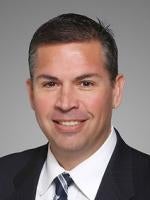Melissa Komorsky v. Farmers Insurance Exchange, et al. — Cal.Rptr.3d –, 2019 WL 1451275 (Cal. Ct. App., March 1, 2019), Second Appellate District Court of Appeal, Case No. B286443.
An uninsured motorist struck and killed Linda Liker, which led to competing claims for uninsured motorist (“UM”) benefits between Ms. Liker’s surviving husband, Alan, and her daughter from a prior marriage, Melissa Komorsky. Melissa did not reside in the Likers’ home.
Farmers Insurance Exchange issued an automobile policy to the Likers containing uninsured motorist coverage of up to $250,000 per person. That policy provided that Farmers would “pay all sums which an insured person or such other person as permitted under the law is legally entitled to recover as damages from the owner or operator of an uninsured motor vehicle because of bodily injury . . . including the wrongful death of an insured person.” (Original bold.) Truck Insurance Exchange also issued an umbrella policy to Alan Liker that, by way of endorsement, added $1 million in uninsured motorist coverage. The Truck policy “followed” the form of the Farmers policy and stated that coverage was payable to “you” (i.e., Alan), any spouse living in the same household (i.e., Linda), and any relative living in Alan’s household.
Alan and Melissa made claims for UM benefits under both policies, but Alan disputed Melissa’s right to benefits under Truck’s umbrella policy. Alan demanded UM arbitration against the insurers. Melissa sued the insurers and Alan asserting causes of action for, among other things, declaratory relief regarding the parties’ rights to UM benefits under the two policies. Farmers filed its own action to interplead its UM policy limit and allow the court to resolve the competing claims. Truck concluded that both Alan and Melissa were entitled to UM benefits under its umbrella policy.
The trial and appellate courts agreed that both Alan and Melissa qualified for UM benefits under the Farmers policy. Insurance Code section 11580.2 requires primary automobile liability insurance policies to include UM coverage, absent the insured’s written waiver of coverage. The mandatory coverage applies to “the insured [and] the insured’s heirs or legal representatives.” Cal. Ins. Code § 11580.2(a)(1). As Linda’s heir, Melissa was legally entitled to recover damages for the wrongful death of her mother, and thus, qualified to recover UM benefits under the Farmers policy.
The courts disagreed with Truck and Melissa that Melissa also qualified to recover UM benefits under the umbrella policy. As a threshold matter, Section 11580.2 expressly excludes its mandatory provisions from automobile coverage that is “provided only on an excess or umbrella basis.” Thus, the statutory requirement that UM coverage under primary automobile liability insurance apply to “heirs” did not extend to excess or umbrella coverage. The Court of Appeal also described Truck as “[c]onflating scope of coverage with the identity of the persons insured by the respective policies.” Specifically, while Truck’s policy provided the same scope of UM coverage as the Farmers policy, it expressly limited those to whom UM benefits were payable: “[I]t is agreed that this policy will provide uninsured and/or underinsured motorist coverage(s) payable to you and any other insured under this policy, to the extent that either or both coverages are part of the underlying insurance.” (Emphasis added.)
While Truck’s policy defined “insured” to include relatives living in Alan’s home, it did not extend to Melissa because she did not live in the Likers’ home. “Therefore, by the endorsement’s plain language, uninsured motorist benefits were not ‘payable to’” Melissa under the Truck policy.
The Court of Appeal also rejected Melissa’s argument for coverage by estoppel. According to Melissa, Truck intended the heirs of an insured to qualify as an insured under its umbrella policy because it investigated her claim, agreed to arbitrate the amount of damages, and did not deny coverage. Thus, she argued that Truck caused her to believe its UM coverage provided her coverage, inducing her detrimental reliance.
Relying on well-established law that, “where coverage does not exist under an insurance policy it cannot be created by estoppel,” the Court rejected the argument. While an insurer may be estopped to assert grounds for forfeiture of policy benefits, estoppel cannot be used “to bring within the coverage of a policy risks not covered by its terms, or risks expressly excluded therefrom.” (Citations omitted.)



 />i
/>i

